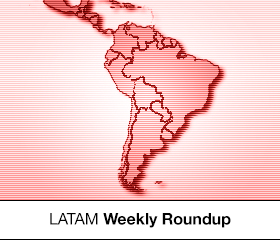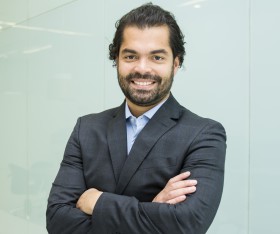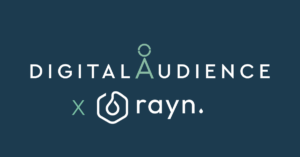Brazilian Mobile Internet Access Surpasses Desktop; Facebook Brazil Has New Country Manager
by on 11th Apr 2016 in News

The Latin American Roundup brings IBGE’s report about internet access in Brazilian households, stating that for the first time, in official data, that mobile internet accesses surpassed desktop's; Facebook announces its new country manager in Brazil; local criticism about changes to the federal rules of internet; and UOL's strategy for programmatic relying on new ad formats.
For the first time, Brazilian mobile access surpasses desktop
Official data from IBGE, Brazilian Institute of Geography and Statistics, shows that the number of people online via mobile internet is higher than people going online via desktop. The landmark was registered in 2014, according to IBGE’s National Research in Households (Pnad), presented earlier last week.
The report reinforces how representative mobile devices are in the local market; 54.9% of households in Brazil register internet access, namely 36.8 million households, an increase of 48% over one year before. Mobile phones were the device cited by most people: 80.4%, against 76.6%, citing desktop computers. Tablets were cited by 16.5%. In terms of connectivity, mobile broadband jumped from 43.5% in 2013 to 62.8% in 2014.
Additionally, digital TV is in 39.8% of Brazilian households, whereas pay TV is in 32.1%, which represents a 12% growth according to 2013’s data. Of all households with internet access, 99.2% had broadband connections.
Facebook has new country manager in Brazil
Last Monday (4 April), Facebook introduced Marcos Angelini as its new country manager in Brazil. Angelina steps in after Leonardo Trintão resigned in June 2014 to assume Airbnb’s main position in the country.
Angelini has worked for more than 20 years at Unilever, as vice president of home care division and CMO of OMO brand. He graduated in Industrial Engineering from Buenos Aires’ Technological Institute and has an MBA from University of Duham. His main role in front of the Facebook team is to be the leader of sales.
“Angelini’s solid experience in marketing and management will help us to keep delivering value to our clients and partners, accelerating our growth in Brazil”, said Diego Dzodan, vice presidente, Facebook LATAM, in a press statement.
Brazilian Internet Authority criticises cybercrime investigation
Brazil’s Internet Committee (CGI.br), the local authority responsible for internet management, criticised the final report made by commission, which is investigating cybercrime in Brazil’s Congress. The document was released on 30 March; but only last week CGI.br has published a statement that manifests its “concern with the flexibility and modifications of the law system adopted in Brazil” with the local law that regulates the internet, Marco Civil da Internet.
The Committee claims that the new regulation “does not consider the process of collaborative work that made its importance worldwide as a law establishing a free, open, and democratic internet”. According to the text, the concern is due to the changes the commission investigating cybercrime wants to impose on the local rules. The document ends with a request to postpone voting of the final report.
The changes proposed by the team aim to impell app providers to adopt techniques that forbid reproduction of content that had been taken down after Court requests. “This concept has no accuracy and it is open possibly to subjective interpretation, not to mention censorship”, writes CGI.br. It also establishes the IP as a personal identifier of internet users.
UOL: 25% of marketers using programmatic
Twenty-five percent of marketers investing in campaigns on Brazilian publisher UOL have used, or are using, programmatic platforms. In sports pages, this ratio is even bigger: 50%. This year, UOL forecasts this number to grow to 30%. In an interview with ExchangeWire Brazil, André Vinicius, ad tech director, UOL (pictured left), gave details of the company's strategy to drive automation.
 UOL is making new formats available through programmatic platforms: IAB’s standards for rich media and two exclusive ones. They are available through private marketplaces and closed actions and, according to Vinicius, the publisher’s priority is cross-device: campaigns will go live on desktop and mobile simultaneously. He claims that UOL’s reach with that can get to six million unique daily visitors.
UOL is making new formats available through programmatic platforms: IAB’s standards for rich media and two exclusive ones. They are available through private marketplaces and closed actions and, according to Vinicius, the publisher’s priority is cross-device: campaigns will go live on desktop and mobile simultaneously. He claims that UOL’s reach with that can get to six million unique daily visitors.
“Our goal is to reach advertisers in an advanced stage of programmatic media investment, thinking about buying media not by the cheapest price via auctions. They already understand how important it is to place their campaigns in premium content platforms in premium formats, and they will be able to use their DSP and their own data to place ads on our pages”, said Vinicius.
The publisher also released its own video network, developed with its own technology and DMP. The idea is to offer a variety of segmentation layers, such as context and user behavior, reaching 300 million monthly video views.
“The biggest barrier in the market is the understanding of platforms and programmatic’s role in the entire digital marketing strategy”, said Vinicius. “We have been investing a lot of effort to show that programmatic media is the opposite of cheap media. To be efficient in it, it is important to invest in data, platform, management teams, stats, optimisation and tracking. We are still seeing opportunistic companies promising cheap CPM, regardless of where the media is placed.”








Follow ExchangeWire